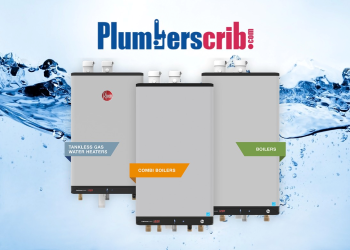🔍 Tankless Water Heaters for Your Home: Reviews, Costs, and Comparisons
Tankless water heaters are gaining traction for their energy efficiency, compact design, and ability to deliver endless hot water. But choosing the right one—electric vs. gas, brand vs. budget—requires a closer look. Let’s break it down.
🧪 Reviews: What Homeowners Are Saying
- Stiebel Eltron Tempra 36 Trend: Praised for its silent operation, 99% efficiency, and ability to handle 4 simultaneous showers Bob Vila.
- Rheem RETEX Series: Known for reliability and value, with models like the RETEX-36 offering up to 8 GPM and self-modulating tech Bob Vila.
⚡ Electric Tankless Water Heaters: Pros, Picks & Performance
Electric tankless water heaters are ideal for homeowners seeking energy efficiency, compact design, and lower upfront installation costs. Here's what makes them shine—and where they might fall short.
✅ Pros of Electric Tankless Water Heaters
- High Efficiency: Up to 99% energy efficiency—only heats water when needed
- Compact Design: Wall-mounted units save space in tight utility areas
- No Venting Required: Easier and cheaper to install than gas models
- Precise Temperature Control: Especially with brands like Stiebel Eltron
- Quiet Operation: No combustion noise or fan hum
❌ Cons to Consider
- Limited Flow Rate: May struggle with simultaneous multi-fixture use in large homes
- Electrical Requirements: May need upgraded breakers or wiring
- Not Ideal for Cold Climates: Incoming water temp affects performance
🔍 Top Electric Models on PlumbersCrib.com
| Brand & Model | Flow Rate (GPM) | Power (kW) | Best For | Price |
|---|---|---|---|---|
| Stiebel Eltron Tempra 36 Plus | ~7.5 GPM | 36 kW | Large homes | $849.00 plumberscrib.com |
| Stiebel Eltron Tempra 24 Plus | ~5.0 GPM | 24 kW | Mid-size homes | $698.00 plumberscrib.com |
| Stiebel Eltron Mini 2-1 | ~0.5 GPM | 2.4 kW | Point-of-use (sinks) | $159.00 plumberscrib.com |
| Rheem RTEX-36 | ~6.0 GPM | 36 kW | Whole-house use | $825.00 plumberscrib.com |
| Rheem RTEX-11 | ~2.7 GPM | 11 kW | Small homes or single fixtures | $279.00 plumberscrib.com |
🧠 Quick Recommendations
- For whole-house use, go with Stiebel Tempra 36 Plus or Rheem RTEX-36
- For bathroom sinks or wet bars, the Mini series from Stiebel is perfect
- For budget-conscious installs, Rheem RTEX-11 offers solid performance under $300
Want help turning this into a blog post or collection page with internal links and SEO optimization? I can also help you build a comparison widget or metafield structure to scale this across your product catalog.
🔥 Natural Gas Tankless Water Heater Comparison
| Brand & Model | Flow Rate (GPM) | BTU Range | Notes |
|---|---|---|---|
| Rheem RTGH-84DVLN-3 | 8.4 GPM | 11,000–157,000 | Super High-Efficiency Condensing; compact design; Hot-Start Programming™; indoor unit plumberscrib.com |
| Rheem RTGH-SR11i IKONIC | 11.2 GPM | 11,000–180,000 | Built-in recirculation pump; EcoNet WiFi enabled; stainless steel heat exchangers plumberscrib.com |
| Takagi T-H3-DV-N | 10 GPM | Up to 199,000 | Indoor condensing unit; Ultra-Low NOx; ideal for large homes; compact and powerful plumberscrib.com |
| Takagi TK-510U-I | 10 GPM | Up to 199,000 | Indoor non-condensing; field convertible gas type; built-in temp controller plumberscrib.com |
These models offer a strong mix of performance and efficiency. Rheem’s IKONIC series stands out for smart tech and built-in recirculation, while Takagi’s T-H3-DV-N delivers high BTU output with clean emissions and compact form.
💰 Cost Breakdown
| Type | Unit Cost | Installed Cost |
|---|---|---|
| Electric | $600–$1,000 | $1,400–$3,000 |
| Natural Gas | $1,500–$2,600 | $2,100–$5,600 |
Installation Factors:
- Electrical upgrades for electric units
- Gas line routing for gas models
- Labor costs: $500–$3,000 depending on complexity
🧠 Pros and Cons of Tankless Water Heaters
✅ Pros:
- Endless hot water
- Energy savings (up to 50% more efficient than tank models)
- Compact, wall-mounted design
- Longer lifespan (20+ years)
❌ Cons:
- Higher upfront cost
- May take longer to deliver hot water
- Inconsistent temps with multiple outlets (unless properly sized)
- Requires annual maintenance (flushing)

